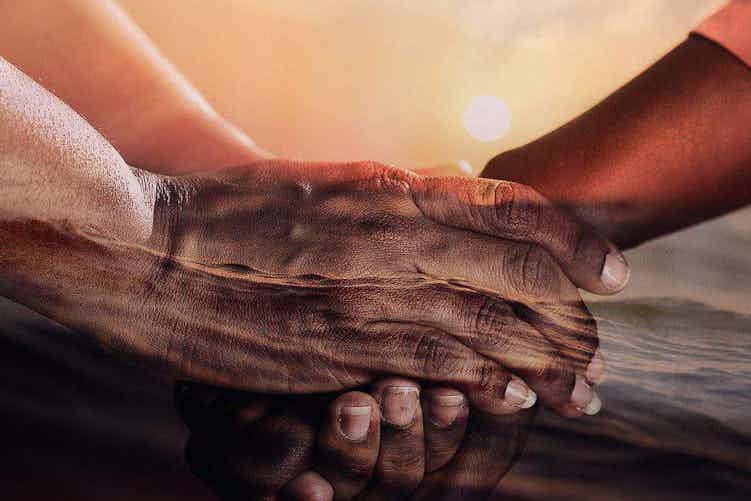Please note all information related to tiers and other restrictions in the UK was correct at time of writing. Please ensure you are aware of the latest and relevant rules for your area.
Father Christmas might still come down the chimney for a visit but visiting relatives might be a tad more complicated this Christmas. With lockdown restrictions coming and going, no one knows quite what Christmas will be like this year. Even with the Government recently publishing guidelines, there can still be changes.
How will you cope with Christmas? How will you show relatives you care if you can't see them? How can you support lonely friends? How do you make any plans at all for yourself? And what do you do if someone you know catches COVID and you want to care for them?
While it's hard to know the rules upfront, we have a few suggestions for how to ensure Christmas becomes as festive as possible!
No one size fits all
New overarching rules for the United Kingdom for Christmas (23-28 of December) have been introduced. They are as follows:
- You can form a so-called bubble with two other families.
- You and your bubble are allowed to meet indoors and stay overnight.
- You cannot take the bubble to a bar or restaurant.
- You can only join a bubble if you do not have COVID. You should also not form a bubble if you're self-isolating due to COVID symptoms but have not yet had a test.
- You can travel anywhere in the UK to meet with your bubble.
- In Scotland, a maximum of eight adults is allowed in a bubble.
Remember that any uniform rules across the whole of the UK will only apply for a few days and even then there are minor differences between the different regions! These rules may also change, so do keep updated on what's going on.
Tiers and the rule of six
Different general restrictions apply in various areas of the United Kingdom—Wales, Scotland and Northern Ireland have rules separate from those in England. For this article, we've stuck to the English rules. Chances are, similar restrictions will be in place in other areas too. You must bear in mind the different rules if you're travelling between the different regions.
England is divided into tiers. In different tiers, different rules apply.
Let's start with explaining the fundamental rule of tiers—the rule of six.
In tier one, you can meet with a group of people, so long as it's a maximum of six people.
In tier two, you can meet with six people, but only outdoors.
In tier three, you can't meet with anyone outside your own household.
Remember, if your relatives are in tier three and you are in tier one, you can't meet up with them. You need to know what applies to all intended guests.
Meet Different People on Different Days
Have more friends and relatives in your bubble that you'd like to meet up with than fits a table of six? Why not spread out the entertainment over several days? Here are some ideas:
- Mulled wine or hot cider one night
- A Christmas arts and crafts day, or baking day
- Christmas dinner or lunch on the 25th
- A board games night
- Lunch with leftover turkey turned into juicy sandwiches.
Having several gatherings instead of one means that not everyone can interact in one go. But it does mean you get to see everyone you care about.
Of course, meeting up with many different people does increase the likelihood of the spread of COVID. Therefore, make sure that you and your loved ones either:
- Don't have COVID
- Aren't high-risk (i.e. could suffer badly if infected)
Split up the family
It may sound atrocious but going to a different party than your husband/wife/children do, isn't always a bad thing.
If you're a family of four, you and one of your children might have Christmas lunch with your parents and one of your siblings. Your other child and spouse, on the other hand, might have Christmas lunch with his/her parents, or siblings.
As a family, you can then choose to play board games at night, play a Christmas gift game, or simply enjoy a candlelit dinner. Or why not bake cakes for your neighbours? Choose an activity that you will all enjoy when celebrating together as a family.
Go Caroling
While you might not be able to meet up with friends and relatives, nothing is saying you can't sing carols outside their door. Or, if your voice isn't one for singing—hand over some (sanitized) gifts.
Something like this can mean a lot for those who feel isolated—singletons and elderly relatives, for example.
Meet up in the great outdoors
For some, meeting with loved ones indoors will likely not be possible. Arranging a picnic in someone's garden, or going for a walk (whether in a park or the countryside) is a great idea. Bring some hot chocolate or mulled wine in a thermos, as well as warm clothing. If you meet in a garden, consider building a simple fire pit, or getting an outdoor heating lamp.
You can also arrange outdoor activities, such as geocaching and treasure hunts. That way you can interact with more than six people, but spread it out so that you work in groups of three, or six.
Make it virtual
If you can't meet up with people at all because you're in tier three, or your loved ones are—create a virtual feast. Whether you all tune in to Skype or Zoom while having Christmas dinner, or you decide to play board games doesn't matter. The important thing is that you do things together—even if it's virtually.
Enable Contact
The elderly often feel isolated under normal circumstances as they've lost friends over the years. Having less mobility can also cause isolation. Therefore, be sure to check in with elderly friends and relatives regularly. A quick call is all it takes.
Single people are also more prone to being lonely during a lockdown as they are in their homes alone (unless they have flatmates). Again, buzz them for a virtual tea, or coffee.
If someone elderly doesn't have WhatsApp, Skype, or similar, consider giving them a tablet, or cheap smartphone. That way, they will be able to do video calls. If they only want to use a phone, call them as often as you can.
Even if someone you know isn't elderly, or single, make a point to stay in touch. Most people, even if locked in with their families, feel isolated these days. Social contact is essential for everyone.
Use snail mail
Yes, texting is easy. Phone calls are fast. But a good old fashioned letter can do a lot to ease boredom during a lockdown. If you're good at writing, have a go at it.
Take care of each other
No matter what tier you are in, support groups are allowed. And in times of a pandemic, support groups are precious should you fall ill.
So how do support groups work?
In short, you set up a group of people who check in on one another. That way, if someone falls sick, the other people can act as carers. Or, to minimize the potential spread, appoint the one person.
Being someone's carer might be as simple as going shopping and leaving the shopping by the door. It can also be more involved if the infected person gets really sick. For example, you might need to help them clean their home, take them to the hospital, etc.
Most importantly, if someone is ill, be sure to check in with them frequently. Ensure they check their temperature hourly and, if possible, give them a pulse oximeter so they can check the oxygen levels in their blood. Even if they can breathe properly, COVID sometimes leads to something called "happy hypoxia." Hypoxia means you don't have enough oxygen in your bloodstream. The term "happy hypoxia" was coined as some people with COVID had no symptoms of hypoxia until it became fatal.
If interacting with someone who is potentially infected with COVID, remember to:
- Stay two metres apart
- Wear a mask and ensure they wear one too; preferably a respirator (such as the FFP2 masks)
- Wash your hands before touching your face
- Wear gloves if cleaning their home, or doing their dishes/laundry
- If your clothing has come in contact with anything they've touched, spray yourself down with some anti-bac when leaving their house
- Wash your clothes and have a shower after being in their home
You can read more about caring for someone with COVID in your own household here.
Be a positive force
It's sometimes hard to stay positive. A lot of people have lost their jobs this year. Some have lost friends or loved ones to COVID. And most of us have suffered from isolation, one way or another.
Due to the economic downturn, Christmas gifts and, indeed, Christmas tables might not be as plentiful as usual.
However, if you're still alive and have a roof over your head, you've done well. If you compare COVID to the Spanish Influenza in the 1920s where over 20M people lost their lives, we're doing well. And compared to many who went through the horrors of WWII, we're doing well.
So make a conscious effort to shift your thoughts to what's working in your life. What do you have to be grateful for? Once you know, spread that Christmas joy to others by asking them what they're thankful for. And instead of moping about only having the one cake—share it with someone who needs a laugh and a good natter. Make Christmas magical, so if you have to do it virtually, or with a plexiglass (or why not: clingfilm) separating your table in two. Get creative!









